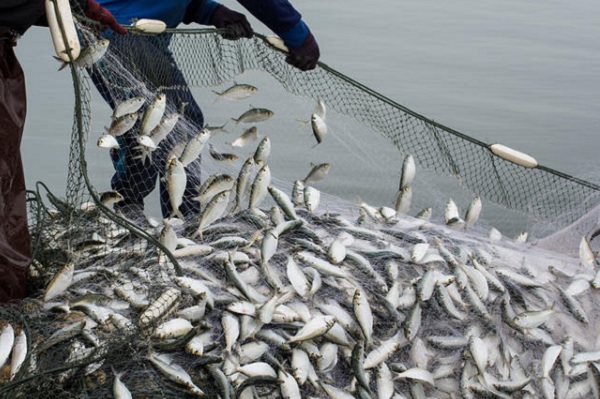
Overfishing leads to depletion. Stop it!
The oceans are suffering from the depletion of important fish species - big and small - due to overfishing and loss of key habitats such as coral reefs.
Ocean overfishing is the harvesting of a species of fish from the sea at rates too high for the fished species to replace themselves, leading to becoming either depleted or very underpopulated.
Advertisement
Systemic overfishing is worsened by illegal catches and trade, estimated at up to 30 per cent of catch or more for high-value species.
It is estimated that Illegal, Unreported and Unregulated (IUU) fishing― any type of fishing that is practised in contravention of existing legal, management and conservation measures― earns up to US$36.4 billion each year globally.
Over the past 55 years, available information indicates that the fisheries industry has recorded decreased yields, with the collapse of large-fish populations.
Ending overfishing
Most depleted fish populations could, however, be restored with aggressive fisheries management, better enforcement of laws governing catches and the increased use of aquaculture.
For example, overfishing in international waters, according to the experts, can be contained with electronic monitoring as a cost-effective way to improve the transparency of fishing activities, while traceability—the ability to track seafood from bait to plate - has also been recommended.
One such effort to fight illegal fishing, including overfishing, is by the European Union (EU) under a four-year fisheries governance project dubbed: Far Ban Bo (FBB) project.
The FBB is designed to contain the challenges of overfishing and unsustainable fishing practices such as IUU fishing and also to address low compliance with fisheries regulations and the weak capacity for the enforcement of fisheries laws.
The project empowers community participation in the management of their resources by forming IUU Community Monitoring Groups (CMGs) that will plan actions for improved IUU monitoring.
The FBB is being implemented by a consortium of three - CARE (the lead), Friends of the Nation (FoN) and OXFAM-in-Ghana - in collaboration with key fishery stakeholders, such as Smallholder Fishery Associations, Fisheries Commission and the Fisheries Alliance.
The World Wildlife Fund (WWF) is also working to stop criminals stealing from legal fisheries and also advocating through the World Trade Organisation to encourage nations to eliminate the harmful fisheries subsidies that contribute to overfishing.
The United Nations (UN) Agenda 2030 is also determined to end unsustainable fishing practices, thus the Sustainable Development Goal (SDG) 14, Target 4 aims to promote sustainable fishing through effective regulation and harvesting, as well as IUU fishing and other destructive fishing practices.
Target 5 is also directed at ending subsidies, contributing to overfishing by the year 2020, through the prohibition of certain forms of fisheries subsidies, which contribute to overcapacity and overfishing; eliminate subsidies that contribute to IUU fishing and refrain from introducing new such subsidies.
The writer is a freelance journalist and a lawyer.



